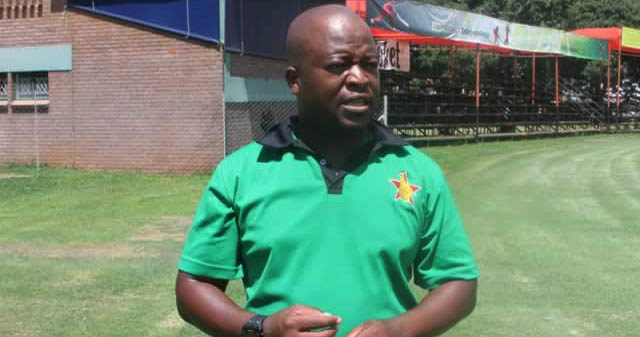
The ManicaPost

Square Square
Correspondent
IT is with great pride and enthusiasm that I share with you the remarkable journey of the rise of blacks’ participation in cricket in Zimbabwe.
Since its inception in 1977 at Highfields Community Schools, blacks’ participation in cricket has grown from humble beginnings to a force to be reckoned with on the international stage.
Led by pioneers such as Lazarus Zizhou, Farai Nongerai, Godfrey Nyadongo, Paul Musekiwa and Chris Tsvarai, the roots of black people participation in cricket were firmly planted in our communities.
Under the guidance of founding members, Spencer Parker and Charles Brockway, these scholars embarked on a journey that would shape the future of cricket in Zimbabwe.
This emergence of blacks’ participation in cricket in Zimbabwe coincided with a pivotal moment in our nation’s cricketing history.
As pressure mounted for Zimbabwe to graduate from amateur to professional cricket, the need to diversify the sport became apparent.
In pursuit of full ICC membership, Zimbabwe Cricket was tasked with spreading the game to the majority of the population who were predominantly black.
This mandate led to the establishment of cricket development programmes in the high-density suburbs of Zimbabwe in 1985, under the leadership of the likes of Dave Levy.
Through coaching courses and mentorship programmes, black cricket began to flourish across the nation, igniting a passion for the sport that spread like wildfire.
Through dedicated coaching and mentorship, blacks’ participation in cricket flourished across Zimbabwe.
From Highfields to Glen Norah and Glen View, Chitungwiza to Bulawayo and Masvingo then Mutare and Kwekwe, the passion for the game spread like veld fire.
Black players honed their skills with determination and dedication, aspiring to reach elite levels of competition.
Teachers played a crucial role in nurturing the talent, with individuals such as Richard Munjoma, Karikoga Motsi, Matthias Dyiwa and Nicholas Singo leading the charge.
These dedicated educators did not only introduced cricket to their schools, but also produced a generation of players who went on to leave a mark on the international stage.
Names like Stephen Mangongo, Square Square, Givemore Makoni, Walter Chawaguta, Bruce Makova, Stanley Timoni, Lazarus Matore, Nicholas Munyurwa, Admire Marodza, Emmanuel Dube, Danmore Padare, Chris and Trevor Phiri, and many others emerged as pioneers of blacks’ participation in cricket.
Their dedication and passion for the sport paved the way for future stars like Alistair Maregwede, George Tandi, Vusi Sibanda, Elton Chigumbura, Nyasha Chari, Patrick Gada, Alfred Mbwembe, Nelson Katende, Mercury Kenny, Tatenda Taibu, Stuart Matsikenyiri, Hamilton Masakadza, Blessing Mawire, and countless others.
However, the journey for blacks’ participation in the game of cricket was not without its challenges despite the remarkable achievements. Discrimination and barriers persisted in schools, clubs, and cricketing institutions, perpetuated by an imbalance in decision-making positions. The resilience and talent of black cricketers prevailed, showcasing their ability to excel in the face of adversity.
In the Year 2000, black clubs across the nation revolted against the system, demanding equal representation and integration within Zimbabwe Cricket.
This development led to the formation of a 10-man Integration Taskforce, marking a turning point in our cricketing history.
With a mandate to ensure nationwide integration in the shortest possible time, the taskforce laid the groundwork for a new era of inclusivity and progress within Zimbabwe Cricket.
As a result of these collective efforts, historic milestones were achieved.
Stephen Mangongo and myself (Square Square) made history by becoming the first black coaches at the highest levels of the game.
Additionally, individuals like Tavengwa Mukuhlani, Slyvester Matshaka, Maureen Kuchocha, Givemore Makoni and Nicholas Singo ascended to leadership roles within Zimbabwe Cricket, further cementing the presence of black voices in cricket administration.
As we celebrate Zimbabwe Independence Day, let us not forget to celebrate the integration of blacks’ participation in cricket, also acknowledge the diversity and unity that it brings to our nation.
Regardless of race or background, all Zimbabweans now have the opportunity to contribute to and benefit from the vibrant tapestry of Zimbabwe Cricket.
In conclusion, let us continue to support and uplift our cricketers, coaches and administrators, recognising the richness of talent and potential that exists within our diverse cricketing community. Together, we can build a future where cricket truly belongs to all Zimbabweans.
Coach Square Square is a veteran cricket mentor who has been in the game for decades. He wrote this piece in his personal capacity.



